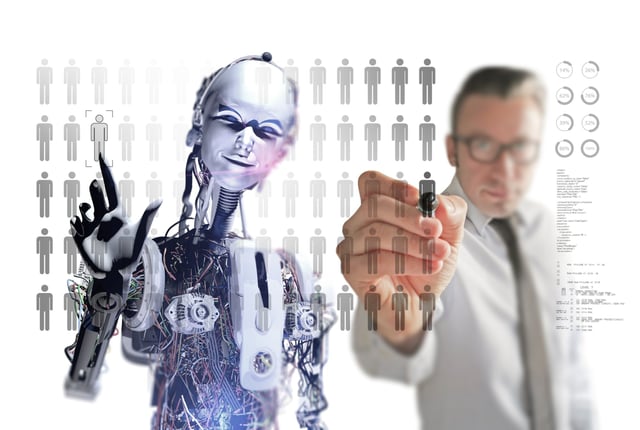
Much of what has been written, for good reason, on the subject of automation is about the potential impact on jobs, with topics including:
- How many jobs will be lost?
- What type of jobs are most or least likely to go first?
- How can one defend one’s role against the specter of creeping automation?
There is no question we face a tipping point with profound implications for our society and economy as cars and trucks go driverless, automated agents start taking customer calls, and bots process all that work in the back office. There is real fear that the rise of the robots signals that human may be on the decline, or at the very least, will have very little left to do and may require universal basic income just to get by. But even though the percentage of work that can be automated may be uncomfortably high, the workforce of the near future will still be a mixed one, where humans aided by new technologies like AI and predictive analytics work “side by side” with robots. Welcome to the digital workforce.
